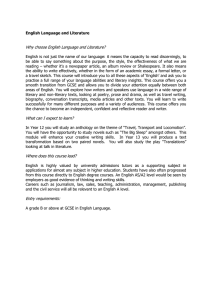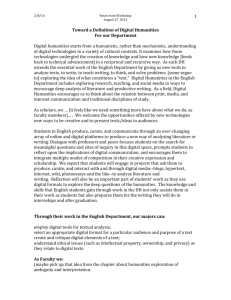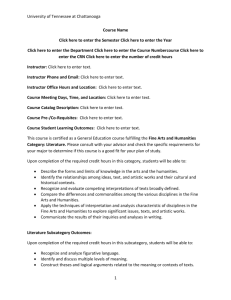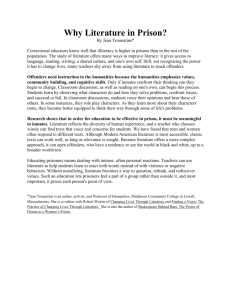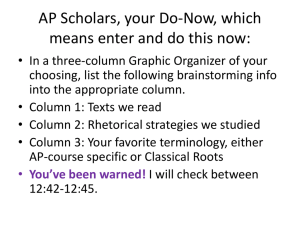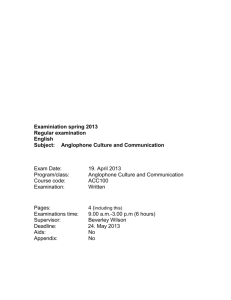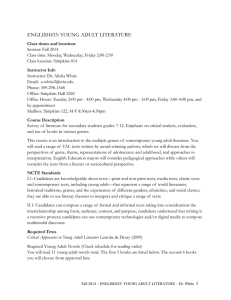Conventions & Strategies in the Humanities
advertisement
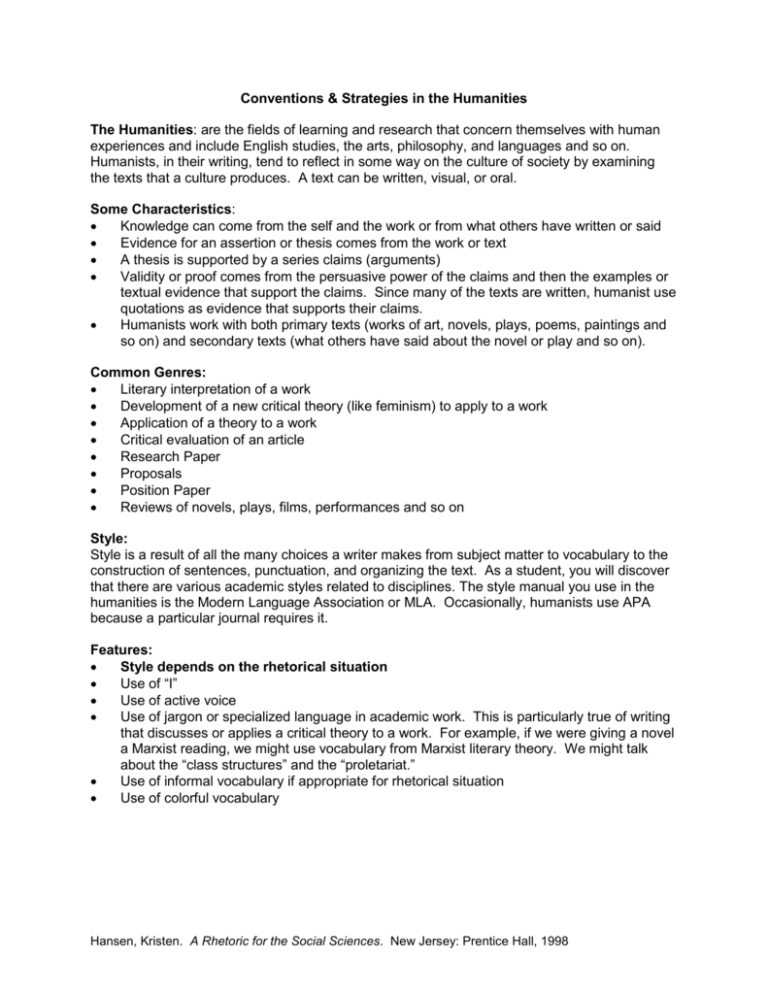
Conventions & Strategies in the Humanities The Humanities: are the fields of learning and research that concern themselves with human experiences and include English studies, the arts, philosophy, and languages and so on. Humanists, in their writing, tend to reflect in some way on the culture of society by examining the texts that a culture produces. A text can be written, visual, or oral. Some Characteristics: Knowledge can come from the self and the work or from what others have written or said Evidence for an assertion or thesis comes from the work or text A thesis is supported by a series claims (arguments) Validity or proof comes from the persuasive power of the claims and then the examples or textual evidence that support the claims. Since many of the texts are written, humanist use quotations as evidence that supports their claims. Humanists work with both primary texts (works of art, novels, plays, poems, paintings and so on) and secondary texts (what others have said about the novel or play and so on). Common Genres: Literary interpretation of a work Development of a new critical theory (like feminism) to apply to a work Application of a theory to a work Critical evaluation of an article Research Paper Proposals Position Paper Reviews of novels, plays, films, performances and so on Style: Style is a result of all the many choices a writer makes from subject matter to vocabulary to the construction of sentences, punctuation, and organizing the text. As a student, you will discover that there are various academic styles related to disciplines. The style manual you use in the humanities is the Modern Language Association or MLA. Occasionally, humanists use APA because a particular journal requires it. Features: Style depends on the rhetorical situation Use of “I” Use of active voice Use of jargon or specialized language in academic work. This is particularly true of writing that discusses or applies a critical theory to a work. For example, if we were giving a novel a Marxist reading, we might use vocabulary from Marxist literary theory. We might talk about the “class structures” and the “proletariat.” Use of informal vocabulary if appropriate for rhetorical situation Use of colorful vocabulary Hansen, Kristen. A Rhetoric for the Social Sciences. New Jersey: Prentice Hall, 1998
